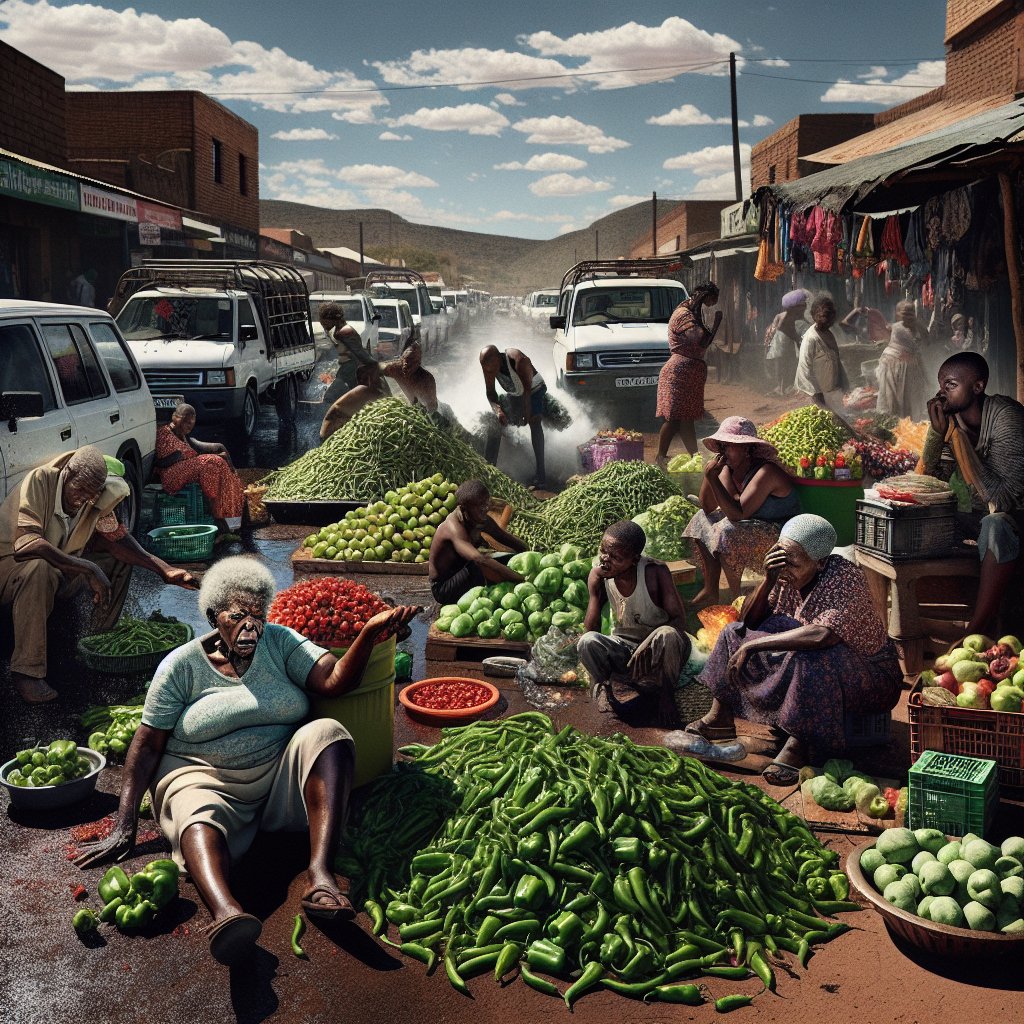Content created by AI
Limpopo Heatwave Hits Street Vendors' Livelihoods Hard
The relentless heatwave sweeping across Limpopo has significantly disrupted the livelihoods of street vendors, particularly in Thohoyandou. The soaring temperatures, which have recently surged to a blistering 40 degrees Celsius, are not only a discomfort to residents but are also taking a severe toll on small businesses. Vendors, who rely on selling fresh produce, are witnessing their goods perish rapidly, hampering their ability to make a living.
At the epicenter of this crisis is Emily Tshabuse, a vendor from Makwarela on the outskirts of Thohoyandou. Specializing in green peppers, naartjies, and grapes, Tshabuse recounts her struggles as the climbing mercury causes her stock to spoil and profits to dwindle. With an entire bakkie of green peppers drastically affected, Tshabuse faced devastating losses, selling a mere 10 out of 100 crates that she had invested R3,000 in. The implications of the heat are not just visible in spoiled produce but also in the fuel and time costs that go unrecovered, leaving her with insufficient capital to restock and continue her business.
Tshabuse's story is echoed by countless other street vendors in the region. Nyawedzeni Nkhumeleni and Nicholas Mbedzi share similar experiences of financial distress as they witness their vegetables dry out and wilt before they can sell them. Despite the harsh working conditions outdoors, they feel compelled to persist, understanding that retreating indoors is not an option when their families' livelihoods are at stake. They also use the opportunity to advocate for public health, urging people to stay hydrated and remain indoors if possible, an indication of the broader community's struggle against the heat.
The implications of this natural phenomenon are far-reaching. The impact of the heatwave extends beyond the immediate spoilage of goods; it undermines the economic stability of vendors, affects the supply chain of fresh produce, and, in broader terms, reflects the intensifying challenges posed by climate change to micro-economies. As these vendors are chiefly reliant on the outdoor market's unpredictability, the loss of produce equates to a loss of vital income, with little to no safety net to fall back on.
As small-scale vendors and farmers bear the brunt of these climatic hardships, there's a mounting concern for sustainable solutions. The story of these Limpopo vendors is a microcosm of a larger global issue, where extended support and adaptive practices are crucial to safeguard the future of local economies against the volatility of our changing climate. Discussions on providing shade structures, cool storage facilities, or even exploring heat resilient crop varieties could be among the measures to mitigate such crises. However, for now, Tshabuse, Nkhumeleni, Mbedzi, and numerous others stand on the frontline of this unexpected weather-induced economic battle, their stories reflecting a growing need for urgent intervention and support.










